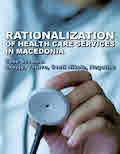

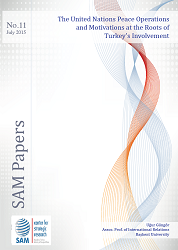
This policy brief studies the evolution of United Nations peace operations and aims at analyzing the moti-vations that lie at the root of Turkey’s involvement in peace operations, mostly organized under the leader-ship of the United Nations in the post-Cold War era. The brief puts forth the argument that participation in such operations has been an identity-constructing activity in the sense that Turkey has, through this par-ticular way, tried to reinforce its eroding western identity in the 1990s. This brief also discusses alternative motivations behind Turkey’s involvement in peace operations, such as security-related considerations in a neo-realist vein and domestic influence of ethnic and religious pressure groups, but argues that these accounts fall short of offering convincing explanations.
More...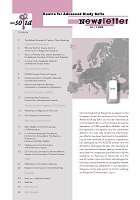
Keywords: Centre for Advanced Study; CAS; CAS-Sofia; Newsletter; CAS Newsletter; CAS Newsletter 2006
Articles, pictures and interviews can be reprinted only with the consent of Centre for Advanced Study Sofia (CAS - Sofia). Any citations should be duly acknowledged.
More...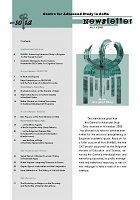
Keywords: Centre for Advanced Study; CAS; CAS-Sofia; Newsletter; CAS Newsletter; CAS Newsletter 2006
Articles, pictures and interviews can be reprinted only with the consent of Centre for Advanced Study Sofia (CAS - Sofia). Any citations should be duly acknowledged.
More...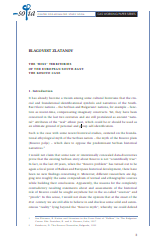
This paper is concerned with cultural differences and how they affect the process of doing business by a specific economic agent: the sole proprietor who operates in the capital cities of Bulgaria and Macedonia. The analysis is based on the empirical results of surveys that are representative of the sole proprietors in Sofi a and Skopje. The sole proprietor is defined here as a physical owner and is represented by the social category self-employed or employer of few wage or non-paid family workers; i.e. the legal term sole proprietor corresponds to the social term small entrepreneur. The legal term is preferred for the purposes of the cross-national empirical survey because the sole proprietor exists as a category in the Trade Law of both countries and has the same social defi nition. It is covered by the national statistics and this fact has permitted us to draw consistent samples in Sofi a and Skopje.
More...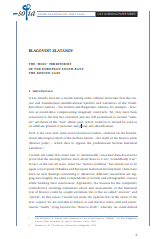
This paper seeks to address one mobility-preventing mechanism, namely restriction on internal movement in socialist Bulgaria (1944-1989). Through a series of measures – ranging from banishment to dislocation to residence legally inscribed in the passport – the state engaged in spatial stratification and geographic management of its population. Its officials had elaborated categories linking human rights to a specific geographical location, while state and local authorities implemented in practice human rights’ successful territorialisation. In both cases, infringement on free movement was aimed at the cultivation of a perfect socialist society, where the moral recovery of unhealthy elements was achieved through removal and isolation.
More...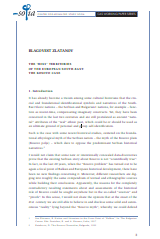
Keywords: Albanian National Movement; Albanian Communist Regime; King Zogu I;Faik bej Konitz;
Faik bej Konitza was an important figure of the Albanian National Movement. During the communist regime in Albania he was labelled a „reactionary,“ and therefore no studies could be undertaken on him. His main sin was to have served as minister in Washington, for King Zog I (1928–1939). With the end of isolationism and fall of the communist regime in 1990, the road for thousands of Albanians to leave the country and for Konitza to come back home, once and forever , was opened. His remnants were brought to Albania in 1995. His simple tomb in the park of the capital Tirana has thus fulfilled his last wish, to be interred in his „fatherland’s soil.“ I present him here as the subject of a case study for three main reasons. Firstly, he was one of the main figures of the second phase of the Albanian National Movement (1878–1912). This allows for some comparative approaches in relation to the „fathers,“ or the first generation of Albanian nationalist intellectuals, one of the most important among them being Shemseddin Sami Frashëri (1850–1904). Secondly, considering the discursive articulation and political instrumentalization of the concepts of folk, people, nation in the late 19th and early 20th centuries, it should be noted that Konitza, more than anyone else among Albanian nationalist intellectuals of his time, stressed the importance of an Albanian literary language in forging an Albanian nation.
More...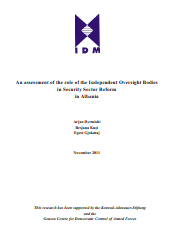
Keywords: The Independent Oversight Bodies (IOB) in Albania; Fundamental Human Rights; The People’s Advocate (PsA); The Commissioner for Personal Data Protection (CPDP); The State Supreme Audit Institution (SSAI)
This research paper analyses the independent oversight bodies (IOB) in Albania. For the purpose of this study, IOBs are defined as those institutions that are established by the Parliament and are accountable to it. They form an essential part of the democratic governance of the security sector. Along with the executive branch, the legislative branch and the judiciary these institutions contribute in holding the security sector accountable to elected civilian representatives.
More...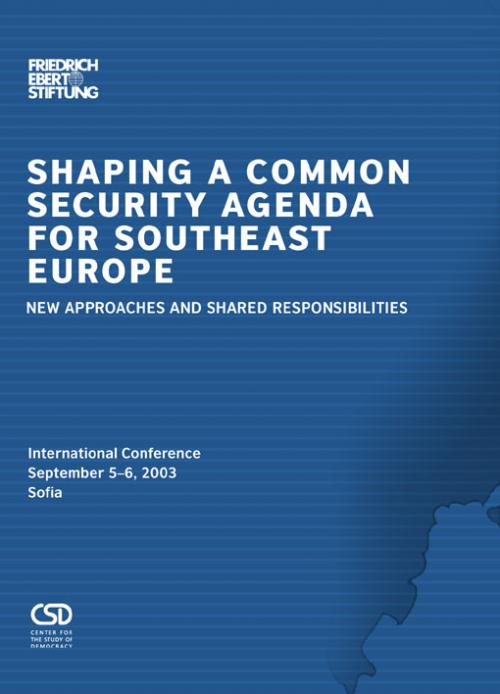
The document summarizes the speeches that were delivered and the discussions that took place during the international conference Shaping a Common Security for Southeast Europe - New Approaches and Shared Responsibilities held on 5-6 September, 2003 in Sofia.
More...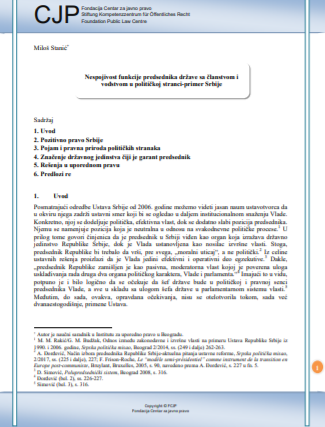
Keywords: president of the state; incompatibility; political party; national unity; Serbia; comparative; governance functions;
The aim of this paper is to examine whether membership in a political party is incompatible with the function of the president of the state. The issue is especially important in context of the previous experience in Serbia. This question gains special importance because the Serbian constitution, as well as the constitutions in comparative law, determine the head of state as the guarantee of the national unity. Consequently the question emerges if the president, who is at the same time a member of the party, can properly fulfill this function? In order to examine all these dilemmas, the term and the legal nature of political parties are examined, as well as the notion of imaginary national unity, which the president is supposed to present. All the theoretical findings are put in comparison with the Serbian law and practice, as well as European. Finally, at the very end, based on previous conclusions, recommendations of possible new solutions in Serbia are presented.
More...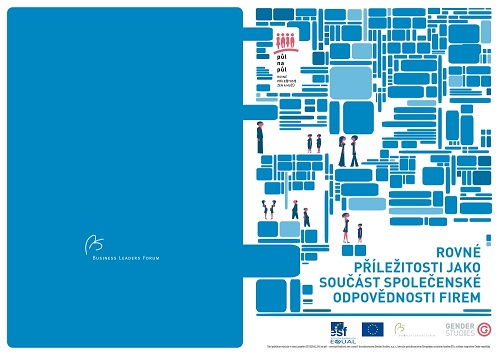
Keywords: Corporate social responsibility; workers; employees; employer; equal opportunities; men; women; human resources; legislation; labour market;
More...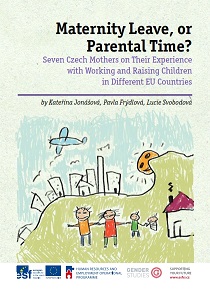
Keywords: Maternity leave; parental leave; parental time; raising children; life-work balance; alternative work arrangement; pre-school childcare; professional and personal life; parenthood; Czech Republic;
How to harmonise family and work? How to build a career without losing the chance of a family? In the Czech Republic this dilemma is more poignant than in other EU countries. Its model, where a woman’ s right to a long maternity leave is not supplemented by her right to preschool childcare or to an alternative work arrangement, is outdated in the European context. The lack of preschool facilities prevents thousands of women from returning to work and fathers from participating more in care. Seven Czech mothers with long-term experience from other EU countries, namely Denmark, Finland, the Netherlands, Germany, Norway and Sweden, shared stories about their encounters with different types of preschool facilities, with returning back to work and with various patterns of maternity and parental leave, which in those countries is not considered vacation, rather a time designated to both parents. For most women in the Czech Republic becoming a mother means entering a vicious circle. The time a Czech woman spends at home with her child is the longest of all countries in Europe. And it is unique even worldwide. Statistics show that most Czech mothers of one child stay at home for three years, which has a very deep impact on both their professional and personal lives (let alone the alternative where two children in a row keep the woman at home for up to eight years). [...]
More...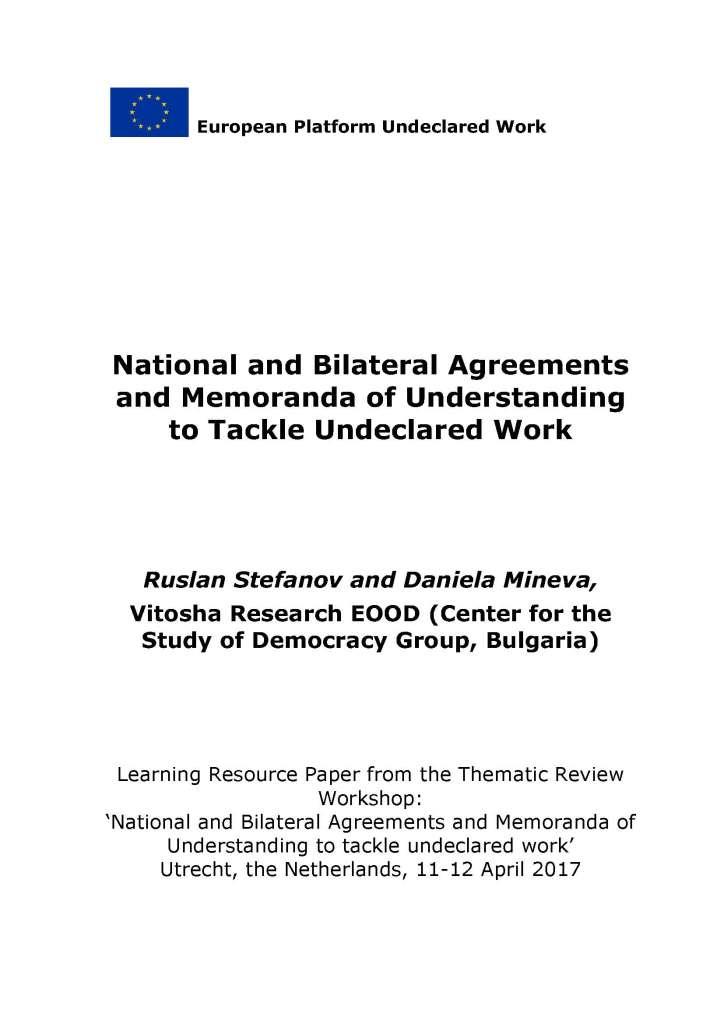
Keywords: CSD; undeclared work; EU; agriculture; aviation; tourism; hotel, restaurant and catering sector; European Platform
As part of the support team of the European Platform tackling undeclared work, CSD is developing a series of papers, analyses and toolkits, aimed at sharing good practices and experiences among the Member States. Since 2016, the European Platform tackling undeclared work provides an EU-level forum that allows different actors, including social partners and enforcement authorities, such as labour inspectorates, tax and social security authorities, to engage in closer cross-border cooperation and joint activities. The Platform’s 2-year work programme for 2019-2020 includes activities enabling Platform members to deal with undeclared work through a holistic approach. The new work programme is building on work to tackle bogus self-employment and fraudulent letterbox companies. Four sectors that are heavily affected by undeclared work have been identified for specific action: agriculture; aviation; tourism; and the hotel, restaurant and catering sector.
More...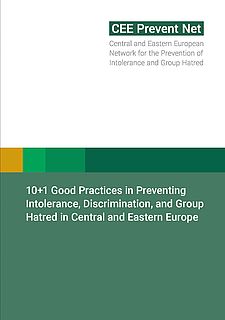
This compendium was created by the consortium members of the CEE Prevent Net initiative. Its development is the result of a robust exchange of good practice methods among various organizations and civil society actors in the areas of youth work and (non-formal) education aimed at preventing intolerance, discrimination, and right-wing populism and extremism in the region of Central and Eastern Europe. Initially, this volume was supposed to present 10 good practices for working with young people directly; however, the CEE Prevent Net network decided to expand this initial enterprise gratuitously. This additional section provides youth workers, educators, and other civic actors with recommendations and advocacy strategies for youth work that fosters tolerance, facilitates dialogue, and prevents discrimination and far right ideologies.
More...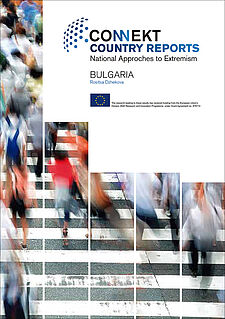
This report focuses on Bulgaria’s national structural and contextual approaches and strategies towards radicalisation and violent extremism. The report offers an overview of these phenomena in the country, reviews what the scientific and academic research has produced so far about the particular drivers for radicalisation, and identifies the actors and initiatives deploying Countering/Preventing Violent Extremism (C/PVE) strategies in the country. It assesses the weight of socio-political drivers in current approaches to radicalisation and violent extremism in the country, particularly towards young people. And it also explores how a socially-rooted approach might fit into the current dominant paradigm of P/CVE. Bulgaria has taken important steps to address these issues though the focus is primarily on Islamist radicalisation, despite the fact that far-right extremism is also a significant challenge. Тhere’s a need to develop a more comprehensive understanding and evidence-based knowledge of radicalisation in order to better prevent and counter violent extremism. An effort where the engagement of key non-state actors such as civil society and religious communities should be enhanced.
More...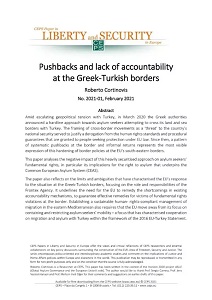
Keywords: asylum seekers; migration; refugees;
Amid escalating geopolitical tension with Turkey, in March 2020 the Greek authorities announced a hardline approach towards asylum seekers attempting to cross its land and sea borders with Turkey. The framing of cross-border movements as a ‘threat’ to the country’s national security served to justify a derogation from the human rights standards and procedural guarantees that are granted to people seeking protection under EU law. Since then, a pattern of systematic pushbacks at the border and informal returns represents the most visible expression of this hardening of border policies at the EU’s south-eastern borders. // This paper analyses the negative impact of this heavily securitised approach on asylum seekers’ fundamental rights, in particular its implications for the right to asylum that underpins the Common European Asylum System (CEAS). // The paper also reflects on the limits and ambiguities that have characterised the EU’s response to the situation at the Greek-Turkish borders, focusing on the role and responsibilities of the Frontex Agency. It underlines the need for the EU to remedy the shortcomings in existing accountability mechanisms, to guarantee effective remedies for victims of fundamental rights violations at the border. Establishing a sustainable human- rights-compliant management of migration in the eastern Mediterranean also requires that the EU move away from its focus on containing and restricting asylum seekers’ mobility – a focus that has characterised cooperation on migration and asylum with Turkey within the framework of the 2016 EU-Turkey Statement.
More...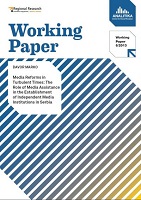
Keywords: Serbia; media; media institution; media assistance role; reforms; independent media;
The Republic of Serbia is located in the central part of the Balkan Peninsula, and is one of seven independent states, established after the break up of multiethnic socialist Yugoslavia. Following the wars at the beginning of 1990s, Serbia remained, together with Montenegro, under the umbrella of the Federal Republic of Yugoslavia until 2003 when the State Union of Serbia and Montenegro was formed. In 2006 Montenegro declared its independence from the State Union. A year later, after it was administered by UNMIK on the basis of the UN Resolution 1244, the territory of Kosovo declared its independence as well. Serbia does not recognize the declaration of independence of Kosovo, but considers the act illegal and illegitimate. Serbia is a parliamentary republic with a multi-party system. The National Assembly is unicameral, composed of 250 representatives who serve four-year terms. Executive authority is exercised by the prime minister and the government. The president is the head of state, elected by popular vote; the role is ceremonial with little executive, legislative, or judicial authority. In 2011, Serbia’s population (excluding Kosovo) was slightly above 7 million people. The majority of the population is comprised of ethnic Serbs (82.9%), while the rest are diverse minority ethnic groups (the largest are Hungarians with 3.9%, Bosniaks 1.8%, Roma 1.4%, etc). Belgrade is the capital of Serbia.
More...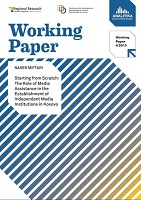
Keywords: Kosovo; media; independent media institutions; media assistance;
Kosovo is a Western Balkans state bordering Serbia, Macedonia, Montenegro and Albania. It was the last administrative unit to emerge as an independent state out of the former Yugoslavia, where it had the status of an autonomous province within Serbia. With the dissolution of Yugoslavia in the 1990s, the tensions between Kosovo Albanians and Serbs escalated into a full-fledged conflict between Serbian forces, loyal to the regime of Slobodan Milošević, and the Kosovo Liberation Army (KLA). The conflict ended after an extensive NATO military intervention that forced Serbia to withdraw from Kosovo in 1999 and led to the creation of the Kosovo protectorate under the supervision of the United Nations Mission in Kosovo (UNMIK). UNMIK administered Kosovo until the country proclaimed independence on February 17, 2008. Following independence UNMIK began to downsize and the European Union Rule of Law Mission in Kosovo (EULEX) was introduced. This development followed the conditions set forth in a UN endorsed plan for an internationally supervised independent Kosovo.
More...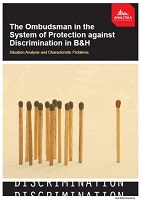
Keywords: BiH; Ombudsman institution; human rights; discrimination; protection; situation analysis;
The Law on the Prohibition of Discrimination of Bosnia and Herzegovina (hereinafter referred to as LPD) accords the Ombudsman of B&H the status of “central institution competent for protection against discrimination” and for that purpose prescribes the establishment of a special department with the sole task of considering cases of alleged discrimination committed by any legal or natural person, in any sphere of life. The law envisions a broad spectrum of competences for the Ombudsman, ranging from promotional activities, through surveys in the field of discrimination, to acting on complaints filed by individuals alleging to be victims of discrimination and taking an active role in misdemeanor proceedings for protection against discrimination. In this regard, the legislative competences of the Ombudsman of B&H in the field of protection against discrimination to large extent conform with international standards relevant for the operation of equality bodies. However, for combating discrimination efficiently it is not enough only to adopt legislative solutions harmonized with these standards. The key is to ensure efficient and proper implementation of the Law, which is currently qualified as poor in Bosnia and Herzegovina, primarily through strengthening institutions that are able to respond to the new important task of anti-discrimination protection accorded to them by the Law and through continuous support to their activities by other key actors. At the same time, in light of some existing legislative innovations, it is important at the earliest possible stage of implementation of the Law to ensure a more precise formulation of certain vague or incomplete provisions which provide the framework for the role of the Ombudsman Institution in the system of anti-discrimination protection, to precisely define and strengthen its concrete competences and conduct on particular issues, as well as to urge its maximum internal engagement in dealing with the problem of discrimination in line with generally accepted standards and obligations. In line with that, the goal of this research, along with providing an overview of international standards and comparative practice related to equality bodies, is to identify some of the obstacles that stand in the way of more efficient fulfilment of the Ombudsman’s role in protection of individuals against discrimination, as well as to offer potential solutions for overcoming them. The report is based on an analysis of the legislative framework, available data on the situation in the field of combating discrimination in practice in B&H (such as relevant statistics, information on the course and outcome of individual cases before the Office of the Ombudsman), analysis of relevant recommendations made by the Ombudsman, and interviews with several competent interlocutors. In addition, a comparative survey was carried out with the aim of identifying examples of good practice related to different problem areas and identified obstacles to efficient implementation on the Law on the Prohibition of Discrimination from the perspective of the Institution of the Ombudsman of B&H. Although the countries included in the comparative survey were defined in advance – using as the basic criterion the existence of an Ombudsman or an equivalent institution in the system of protection against discrimination and aiming to encompass primarily European Union countries and countries in the region that share our problems – additional interesting cases were also included if required by a specific aspect of the survey. In this connection, bearing in mind the still insufficient practice in this field, we focused on analyzing structural conditions and processes in which the Ombudsman of B&H is involved in order to identify the fundamental structural obstacles. Based on contextualized analysis and comparative experience, we produced recommendations on how to advance the position and maximize the contribution of the Ombudsman in efficient implementation of the Law on the Prohibition of Discrimination. Bearing in mind the numerous roles accorded to this institution by the Law, we focused on institutional aspects and on the key competence of the Ombudsman in this field – i.e. on fundamental problems and possible solutions related to acting on individual discrimination complaints. It is important to emphasize that the final draft of this publication was sent to a large number of experts, Institution of the Ombudsman of B&H and Serbian Commissioner for Protection of Equality, as well as to a wide circle of relevant actors in this field. Their comments and suggestions were integrated into the final version of the report. The report is structured as follows: relevant international standards related to ombudsman institutions and equivalent equality bodies are presented first. After these introductory considerations, the position and role of the Institution of the Ombudsman of B&H is briefly presented in the context of the Law on Protection against Discrimination of B&H, specifically focusing on the procedure for individual complaints. The third, key part of the report lays out the fundamental legislative, institutional and procedural problems and obstacles that make it difficult for the Ombudsman of B&H to effectively exercise the function of central institution for protection against discrimination in B&H. Recommendations elaborated in detail and aimed at eliminating the identified problems constitute the closing section of this report.
More...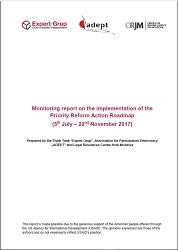
Keywords: reform priorities in Moldova;
This report provides an independent evaluation of the implementation of Roadmap provisions for June - November 2017. The document covers eight policy areas, with a summary of developments for each of the actions, comments on the main achievements, and a list of relevant policy recommendations. Evaluation of the implementation of provisions of the Priority Reform Action Roadmap was based on a methodology focused both on the evaluation of the implementation in terms of the established timelines and in terms of the quality of the implemented actions. Given that timelines for several actions included in the Roadmap were rather tight, and therefore were often missed, the evaluation of progress was focused on the quality of acts adopted/measures taken and their potential impact (Annex 1).
More...